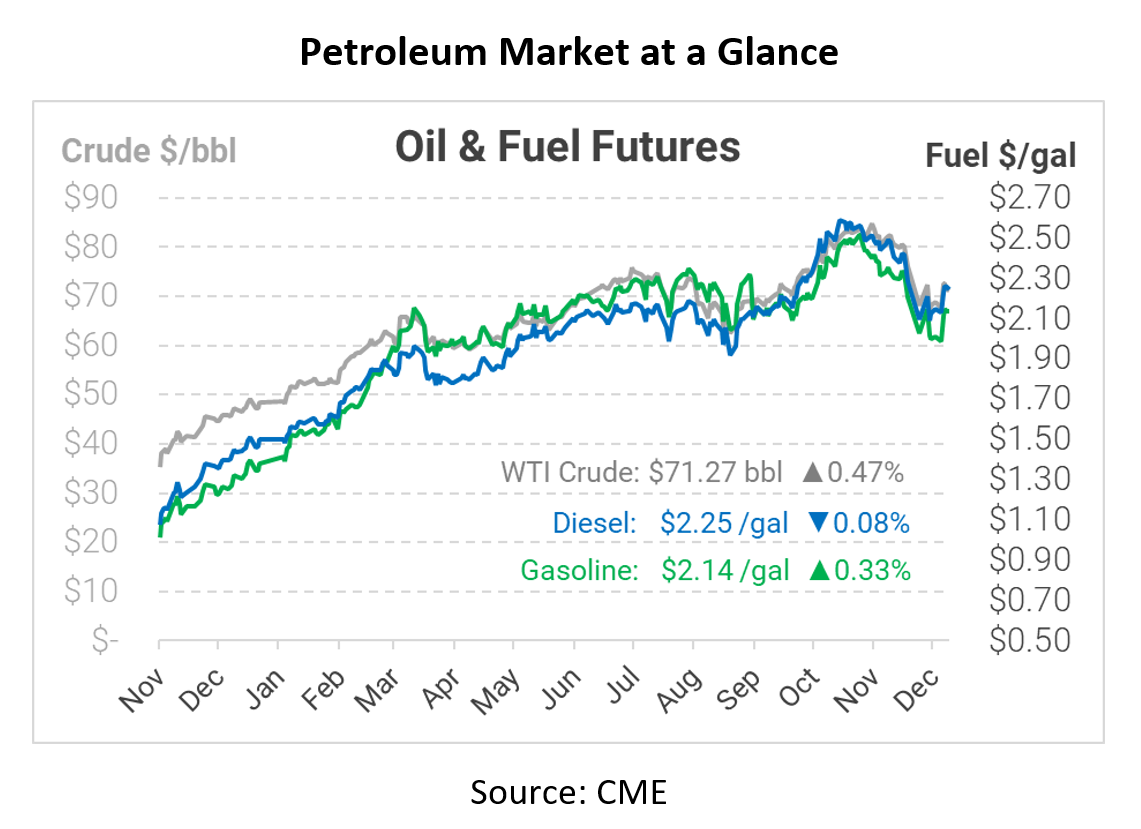
Oil Export Ban? White House Says No
This morning, the oil complex is trading sideways as traders continue re-hashing old news, including the Omicron variant, China’s economy, and inflation. The biggest headline of the day is that the White House is not considering an oil export ban – much to the relief of oil markets.
Until 2015, the US was not allowed to export crude oil. The limited amount of crude exported before 2015 was a specific crude blend predominantly shipped to Canada. In December 2015, the Obama administration changed the policy to allow exports, corresponding to a massive increase in American oil production. Since 2015, exports have exploded, reaching 3.6 million barrels per day before the pandemic.
A bipartisan group of eight US House Representatives wrote a letter to the White House noting that an export ban would not help lower oil prices. Other analysts have agreed – trapping US crude in the US might have a temporary effect on prices in some areas, while other areas would struggle. For instance, since many exports are sent from the Gulf Coast, fuel prices in that region would plummet as crude was stranded in the US. However, the Northeast relies on crude oil from Europe and Canada, and those prices would surge as Canadian and European suppliers begin shipping to America’s old customers. Long-term, an export ban would cause US producers to underinvest in output, shrinking the world’s total oil supply and leading to higher prices. It’s a lose-lose, so it’s a good sign that the current White House administration is not considering the ban.
This article is part of Daily Market News & Insights
Tagged:
MARKET CONDITION REPORT - DISCLAIMER
The information contained herein is derived from sources believed to be reliable; however, this information is not guaranteed as to its accuracy or completeness. Furthermore, no responsibility is assumed for use of this material and no express or implied warranties or guarantees are made. This material and any view or comment expressed herein are provided for informational purposes only and should not be construed in any way as an inducement or recommendation to buy or sell products, commodity futures or options contracts.







